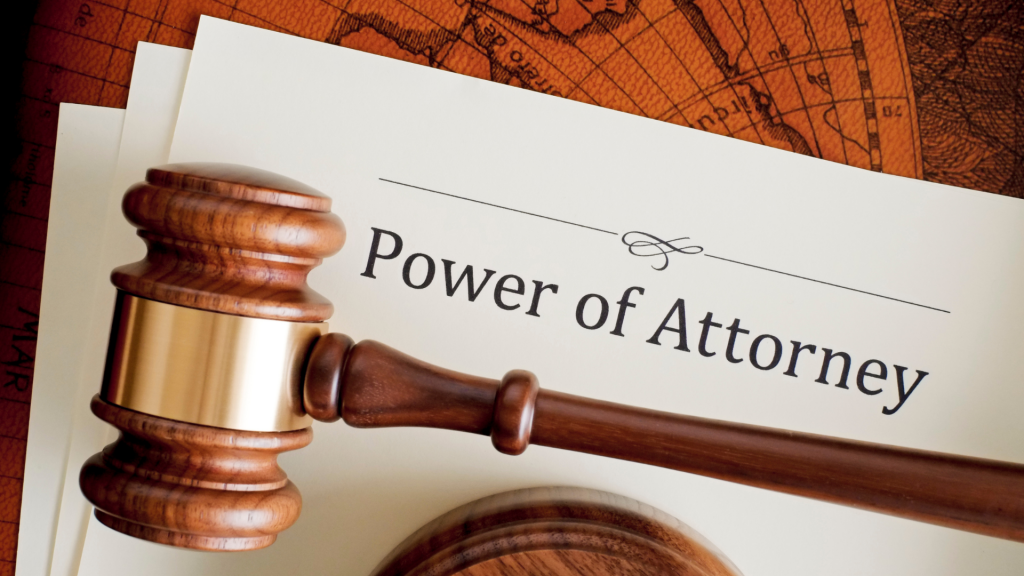Power of attorney (POA) is a legal paper wherein an individual appoints a person, called an agent or attorney-in-fact, to act on your behalf. It’s a simple document that often comes attached to other legal forms, like health care directives, trust agreements, and court forms. Having POAs is useful for a number of reasons. For example, if you’re traveling, you can give someone power of attorney so they can take care of your affairs while you’re away. If you become incapacitated, you can also designate a person as your agent to make medical decisions for you.
There Are Four Types of Powers of Attorney
Durable Power of Attorney
A Durable Power of Attorney, or DPOOA, enables a designated person to make legal and financial decisions for you in the event that your mental or physical capacity is diminished or absent. This is commonly used for the elderly who are unable to manage their own affairs, especially as they approach the end of their life. This type of PoA can be drafted by an estate planning attorney who usually sets up a plan to handle the assets.
General Power of Attorney
A general power of attorney grants a person of your choosing the legal authority to manage your finances and make financial decisions on your behalf. The second type of power of attorney, a Limited Power of Attorney, grants a person of your choosing the legal authority to make healthcare decisions for you.
Limited Power of Attorney
Limited power of attorney, or LPA, takes the place of the Enduring Power of Attorney or the Enduring Guardianship. It is used to appoint someone to make decisions on your behalf if the legal situation allows it. A medical power of attorney is used to appoint someone to make medical decisions on your behalf. The attorney can make all the medical decisions for you and decide whether you will get treatment.
Springing Power of Attorney
A Springing Power of Attorney, or SPAOA, allows somebody to make healthcare decisions on your behalf. In most cases, either or both types of power of attorney will be needed.
Securities Power of Attorney
A Securities Power of Attorney is granted to a lawyer who specializes in the field of securities law, making decisions for the Issuer. Also known as the Originator, they give power to the lawyer to act on their behalf in matters of fraud or securities exchange.
What Does a Power of Attorney Do?
A power of attorney, or LPA, is a binding document giving another person (called the “attorney-in-fact”) the power to make important decisions on your behalf. Powers of attorney can be limited, meaning the attorney-in-fact can only make specific decisions (like signing checks or managing your bank account), or they can be broad, giving the attorney-in-fact broad discretion over your affairs. Powers of attorney can be used when you are incapacitated in some way. For example, a power of attorney can be used if you are in a coma or if your mental or physical faculties are so impaired that you are unable to manage your own finances or healthcare decisions. In nursing homes, hospitals, or while being cared for at home or in a nursing home, you can give someone the power of attorney (probably through Just POA).
What Is the Power of Attorney Agent Responsible For?
A power of attorney is an official document giving another person full or limited legal authority to represent you in a legal matter, such as handling your finances or completing important tasks like selling your house or transferring property. Along with powers, a power of attorney gives your agent the authority to act on your behalf. In order to create a power of attorney, you must have a power of attorney agent-the individual who receives the document and has the power to act on your behalf.
What Are the Restrictions on a Power of Attorney?
A Power of Attorney (or “POA”) is a legal document wherein the “principal” grants the “attorney-in-fact” binding authority to make medical, financial, and other important decisions on their behalf if they become incapacitated.
So, what are the agent’s powers, and is it a good idea to hire a power of attorney agent? It’s scary and stressful to think about, but you may be able to avoid guardianship if you’re ever incapacitated. If you have someone you trust, it’s a good idea to think ahead and create a power of attorney. A power of attorney is a legal document that allows someone to manage your finances or give medical permission to someone else.
How Do I Make My Power of Attorney Decision Legally Binding?
There are several important documents you should prepare for your eventual incapacity. A power of attorney is one of them, allowing you to appoint another person to make legal decisions for you. However, for your power of attorney to be legally binding, it must be notarized. You could get your power of attorney document prepared and notarized from services that you find most appealing for you. For example, if you’re Russian or of Russian descent, then notaries like Rush In services (оформить доверенность) and others like them might be more useful to you than others.
This document will appoint a power of attorney who can make decisions on your behalf if you cannot. For instance, if you have an accident or become ill, your power of attorney can make medical decisions on your behalf, such as what treatment and medicines you receive.
An Executor is someone you can legally appoint to take care of your estate after you die. The Executor will take control of all your property and decide to who it should be given. An Executor is very important if you have young children or assets that may only benefit you if you die.

